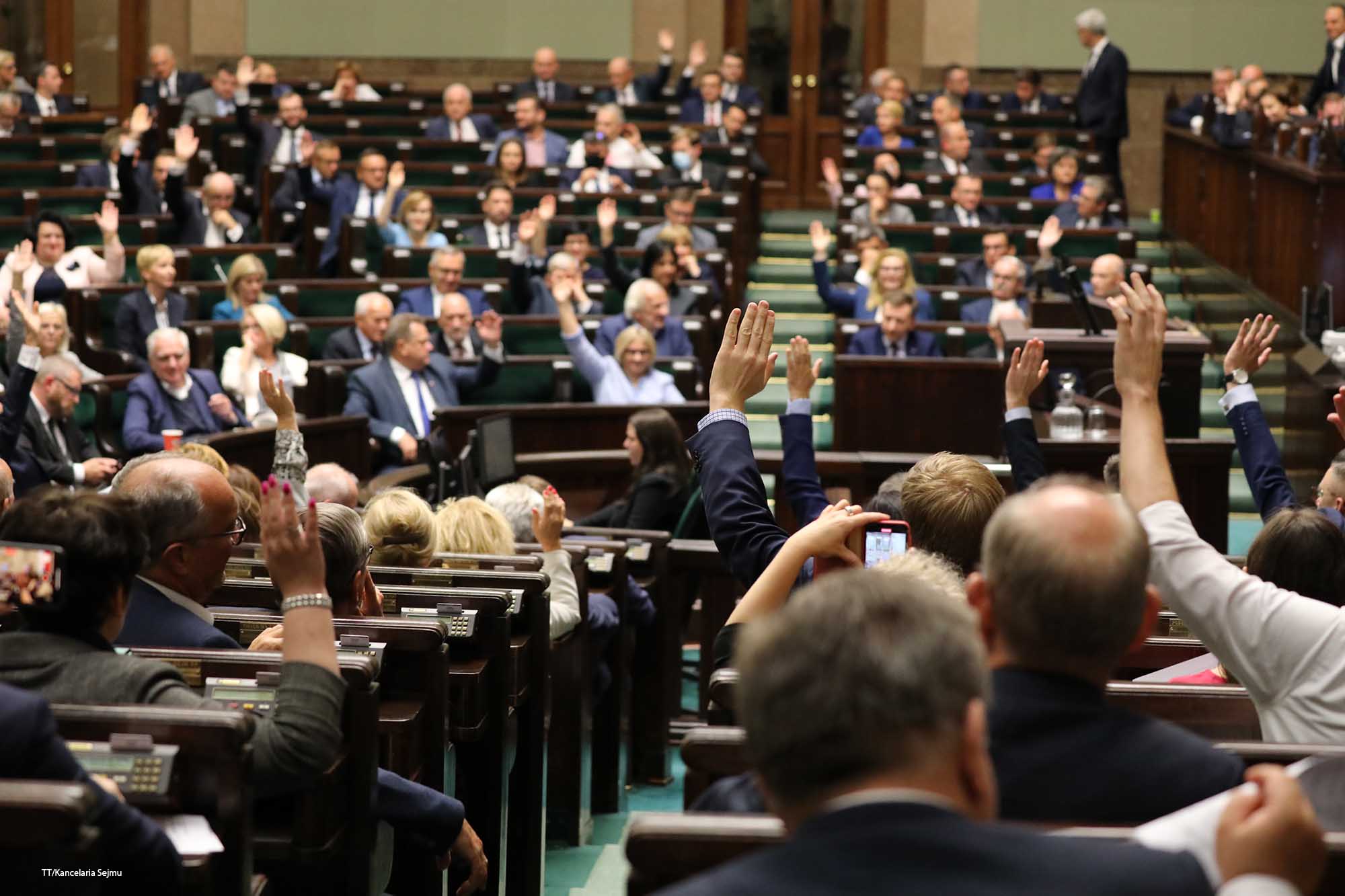The ruling conservative Law and Justice (PiS) party has decided to propose a change in Poland’s constitution in order to limit immunity for both parliamentarians and judges.
PiS will propose that MPs and judges face prosecution for any alleged breach of the law and will only have immunity for any material consequences of the legislative decisions they take.
Currently, any removal of parliamentary immunity requires a vote by deputies of the lower house, Sejm, for MPs, or by the Senate for senators. Under the new proposal, MPs would no longer have immunity for drunk driving, petty theft, or any other case involving criminal prosecution. Parliamentarians will however still have immunity for anything they say in parliament, the way they vote, and the legislation they sponsor both during and after the completion of their term of office.
Changing the constitution is notoriously difficult in Poland. Any proposal must garner two-thirds of all MPs with a quorum of at least half of MPs present and voting as well as a majority of senators. It is inconceivable that any proposal could therefore get passed without the support of the opposition.
Asked whether the ruling party has consulted with the opposition regarding their proposal, their caucus leader Ryszard Terlecki said that the ruling party was convinced the opposition will support curtailing obvious abuses of immunity. He was evasive on the issue as to why PiS was proposing this at this moment in time, only saying that any moment is right as long as the proposal has been carefully prepared.
The ruling party does not have a majority in the Senate. The deputy speaker of the Senate from the ruling party, Marek Pęk, hinted that one of the political objectives of the proposal was to draw attention to the case of Speaker of the Senate Tomasz Grodzki from the liberal Civic Platform (PO). Grodzki has refused to give up his immunity. and the Senate did not lift it, despite the fact that he is alleged to have taken bribes when he worked as a senior surgeon at a hospital in the city of Szczecin. According to Pęk, Grodzki was a prime example of the abuse of the privilege of parliamentary immunity.
The leader of the opposition, Civic Platform’s Donald Tusk, said that he had never been in favor of formal parliamentary immunity and that MPs should have to face the consequences of breaking laws; however, he felt that this proposal is too close to the election and that it should only be introduced in the next term of parliament.
Other opposition politicians were more negative, saying that they did not trust PiS and would not sit down with the ruling party to deliberate on changing the constitution.
Tusk had little alternative but to take the tactical approach of saying a conditional yes to the proposal. His party back in the 2000s had proposed the removal of parliamentary immunity as part of its campaign for constitutional reform.






